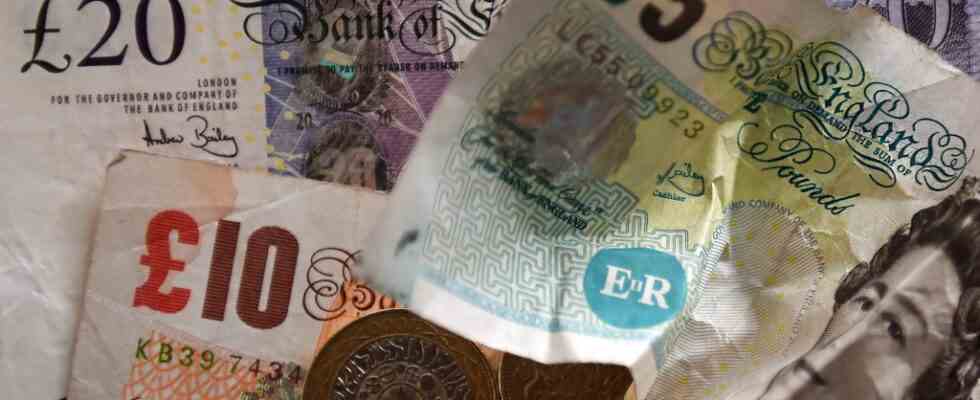Status: 09/26/2022 11:30 a.m
Doubts over UK public finances trigger sterling sell-off. The currency has fallen to an all-time low against the dollar. Some experts believe that the Bank of England should intervene.
The pound fell at times by almost five percent today to $1.0350, marking a new record low. The trigger for the biggest drop in prices since the stock market crash in March 2020 was the British government’s announcement that it would significantly reduce taxes. The British currency had already lost drastically in value in the past few days.
The new government under Prime Minister Liz Truss and Finance Minister Kwasi Kwarteng presented the strong tax cuts last Friday. Experts also regard other planned relief as a factor of uncertainty. On Friday, the pound fell below $1.10 for the first time in a long time. Some experts reckon that parity could come about.
High national debt
The government wants to finance its plans of tens of billions of pounds primarily through enormous additional debt. The think tank Institute of Fiscal Studies (IFS) criticized that Kwarteng put the national debt on an “unsustainable, rising path”. The think tank Resolution Foundation assumes that Great Britain will need additional loans of 411 billion pounds (around 460 billion euros) in the next five years. “The Tory’s casino economy is putting the mortgages and finances of every family in the country at risk,” tweeted opposition leader Keir Starmer.
Are Investors Losing Confidence?
The financial policy course is causing the foreign exchange market great concern in view of the rising national debt, commented expert You-Na Park-Heger from Commerzbank. At the same time, the planned relief threatened to exacerbate inflationary pressure, according to Commerzbank foreign exchange expert Ulrich Leuchtmann. Meanwhile, UK Finance Minister Kwarteng said the reform was just the beginning. More tax cuts are to follow.
“There is a real risk that international investors will lose confidence in the UK government,” Mark Dowding of asset manager BlueBay Asset Management told the Financial Times. The market is wondering how Kwarteng intends to finance the enormous costs. US economist Nouriel Roubini sees the country as already on course for an International Monetary Fund (IMF) bailout. “Britain is acting a bit like a rising market turning into a falling market,” said former US Treasury Secretary Larry Summers.
“The Bank of England (BoE) needs to step in today to stabilize the pound,” said Rabobank’s investment strategist Michael Every. Only on Thursday did the central bank increase the key interest rate significantly to 2.25 percent in the fight against high inflation. This makes loans and mortgages more expensive. The central bank assumes that the British economy is already in a recession.
Euro at 20-year low
The European common currency also cost around 0.95 dollars on Monday night, which is less than it was for the last time in 2002. The euro is primarily burdened by the energy crisis in Europe. The outcome of the election in Italy, where right-wing forces gained the upper hand, may have weighed on the euro.
In addition, the US dollar is still in high demand on the financial markets. In return, other currencies are coming under considerable pressure. In times of crisis, investors regard the dollar as a safe alternative to other investments.

